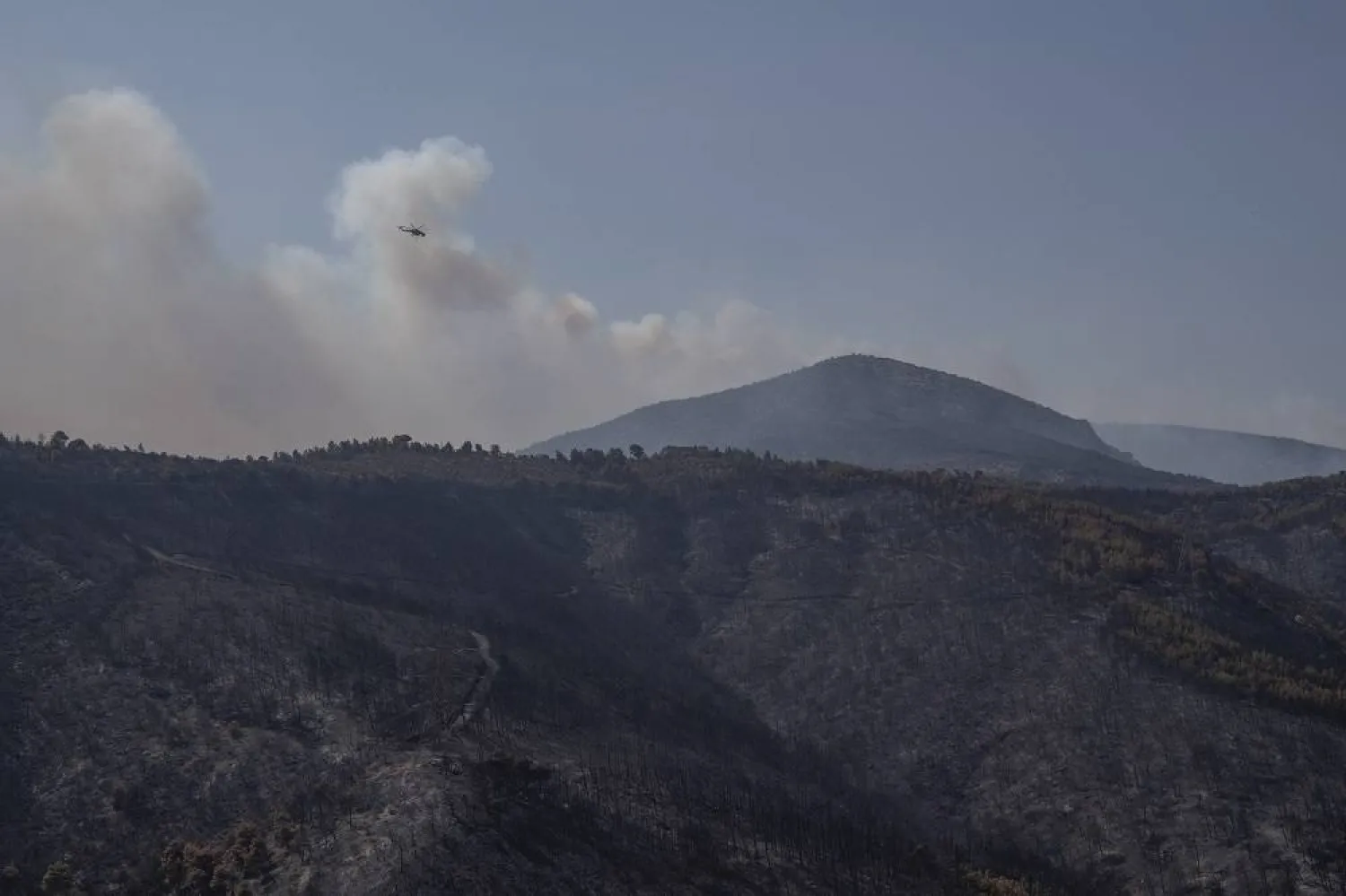Greek fire department officials arrested two men on Saturday for allegedly deliberately starting wildfires as hundreds of firefighters battle blazes that have been blamed for 21 deaths.
One man was arrested on Evia for allegedly deliberately setting fire to dried grass in the island's Karystos area. The fire department said the man confessed to having set four other fires in the area in July and August.
A second man was arrested in the Larissa area in central Greece, also for allegedly deliberately setting fire to dried vegetation. Judicial authorities were informed in both cases.
Officials have said arson has been to blame for several fires in Greece over the past week, although it is still unclear what sparked the country's largest blazes, including one in the northeastern region of Evros and Alexandroupolis where nearly all the fire-attributed deaths have occurred, and another on the fringes of Athens.
“Some ... arsonists are setting fires, endangering forests, property and above all human lives,” Climate Crisis and Civil Protection Minister Vassilis Kikilias said Thursday. “What is happening is not just unacceptable but despicable and criminal.”
The minister said nine fires had been set in the space of four hours Thursday morning in the Avlona area in the northern foothills of Mount Parnitha, a mountain on the northwestern fringes of Athens that is one of the capital's last green areas. A major fire was already burning on the southern side of the mountain at the time, and continued burning Saturday.
“You are committing a crime against the country,” Kikilias said. “We will find you. You will be held accountable to justice.”
Later that day, police arrested a 45-year-old man on suspicion of arson for allegedly setting at least three fires in the Avlona area. A search of his home revealed kindling, a fire torch gun and pine needles, police said.
Greece has been plagued by the daily outbreak of dozens of fires over the past week as gale-force winds and hot, dry summer conditions combine to whip up flames and hamper firefighting efforts. On Friday, firefighters were tackling 111 blazes, including 59 that had broken out in the 24 hours between Thursday and Friday evening, the fire department said.
Most are tackled in the early stages, but some have grown to massive blazes that have consumed homes and vast tracts of forest.
Storms were forecast for some areas of Greece Saturday, and there were reports of lightning causing several fires near the Greek capital that were being tackled by firefighters.
Greece's largest current blaze, blamed for 20 deaths, was burning for an eighth day Saturday in the country's northeast.
Firefighters found 18 bodies in woodland on Tuesday, one on Monday and another Thursday. With nobody reported missing in the area, authorities believe they could be migrants who recently crossed the border from Türkiye.
Greece’s Disaster Victim Identification Team has been activated to identify the remains, and a telephone hotline set up for potential relatives of the victims to call. One more victim — a man reportedly trying to save his livestock from advancing flames in central Greece — died on Monday.
More than 290 firefighters, backed by five planes and two helicopters, were battling the Evros blaze. By Thursday, the fire had scorched more than 75,000 hectares (185,000 acres, 750 square kilometers) of land, according to the European Union’s Copernicus Emergency Management Service. Copernicus is the EU space program’s Earth observation component and uses satellite imagery to provide mapping data.
A further 260 firefighters, four planes and three helicopters were tackling another fire that has been burning for days on Mount Parnitha, on the northwestern fringes of the Greek capital.
With firefighting forces stretched to the limit, Greece called on other European countries for help. Germany, Sweden, Croatia and Cyprus sent aircraft, while dozens of Romanian, French, Czech, Bulgarian, Albanian and Slovak firefighters helped on the ground.
Greece imposes wildfire prevention regulations, typically from the start of May to the end of October, to limit activities such as the burning of dried vegetation and the use of outdoor barbecues.
Since the start of this year’s fire season, fire department officials have arrested 163 people on fire-related charges, government spokesman Pavlos Marinakis said Friday, including 118 for negligence and 24 for deliberate arson. The police made a further 18 arrests, he added.









